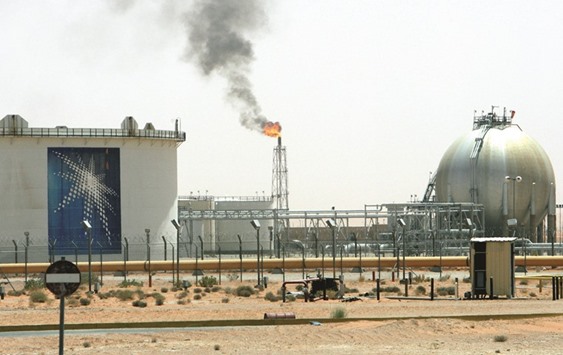Saudi Arabia has ended its idea of free oil markets.
It took the kingdom’s new Oil Minister, Khalid al-Falih, six months to end the country’s two-year policy of pump-at-will.
The decision at this week’s meeting of the Organization of Petroleum Exporting Countries in Algiers to cut production was also necessitated by Saudi Arabia’s needs. The kingdom has the highest budget deficit among the world’s 20 biggest economies and may delay its first international bond issue.
“Saudi Arabia wants higher prices,” said Amrita Sen, chief oil analyst at consulting firm Energy Aspects Ltd in London.
The consequences could be vast. Giants such as Exxon Mobil Corp may soon be flush enough to revive abandoned projects. Finances of cash-strapped Opec countries like Venezuela will get a boost. Russia and other independent oil-rich countries will have to decide whether to follow Saudi Arabia’s lead. US shale producers, which Opec hoped it could push into bankruptcy, will use higher prices to drill new wells, and American consumers, who’ve enjoyed the lowest gasoline prices in more than a decade, will pay more at the pump.
Oil prices, hovering under $50 a barrel, need to rise to encourage long-term investment, al-Falih said.
In 2014, when Saudi Arabia led Opec’s pump-at-will policy, Riyadh calculated that if it reduced output, prices wouldn’t rise enough to compensate. This time is different.
“Saudi Arabia is betting that a small cut will pay for itself through higher oil prices and hence higher revenues,” said Jamie Webster, a fellow at the Center on Global Energy Policy at Columbia University in New York.
It’s not as if the pump-at-will policy hasn’t had its moments. Saudi Arabia has achieved some of its objectives. Low prices tossed water on the US oil boom, and energy companies have cut as much as $1tn in new projects, creating a possible supply hole in the next decade. The kingdom has also scared investors who are now more likely to think twice before plunging money into risky oil ventures. And from the US to China, sales of gas-guzzling cars have soared, bolstering demand.
For all the justifications, the last two years haven’t panned out as Riyadh thought they would. At home, the kingdom has burned through more than $150bn of foreign-exchange reserves, and this week it announced unprecedented pay cuts for civil servants.
Saudi Arabia will suffer a fiscal deficit equal to 13.5% of gross domestic product this year, the International Monetary Fund estimates. When it comes to economic growth, Saudi Arabia is slowing sharply to about 1% this year.
The pump-at-will policy brought chaos to the oil industry as prices tumbled from $100 a barrel to a 12-year low of less than $30. Companies tightened their belts, cancelled projects and sold assets. But they kept pumping.
That may continue. Producers who fell in love with drilling projects approved during the boom years of plus-$100 a barrel have kept production humming from the Gulf of Mexico to Brazil.
Iran will be exempt from capping production, a major concession by Saudi Arabia. Many of the details remain to be worked out and the group won’t decide on targets for each country until its next meeting at the end of November.
Goldman Sachs Group Inc said the deal to cut output could add as much as $10 a barrel to oil prices, though it remains sceptical along with other banks on how the accord will be implemented.
Just as Saudi Arabia agreed to pare output, the world’s most expensive oil field - the $50bn Kashagan in Kazakhstan - is about to go online. The project, nearly a decade in the making, will add thousands of barrels of additional production in 2017 to an already oversupplied market.
Russia, too, has kept the pumping party going. As Opec was meeting in Algiers, Moscow announced that the country’s output smashed a post-Soviet record in September, reaching 11.1mn bpd. That’s up about 400,000 barrels from August, roughly what Opec member Ecuador produces.
Mexico, Norway and other non-Opec countries may join Russia in pushing forward. So may US shale drillers. Stephen Schork, president of consulting firm Schork Group in Villanova, Pennsylvania, said he was surprised by the Opec decision – and sceptical that Saudi Arabia can get other producers to cooperate.

A gas flame is seen in the desert near the Khurais oilfield, Saudi Arabia (file). The kingdom has the highest budget deficit among the world’s 20 biggest economies and may delay its first international bond issue.
